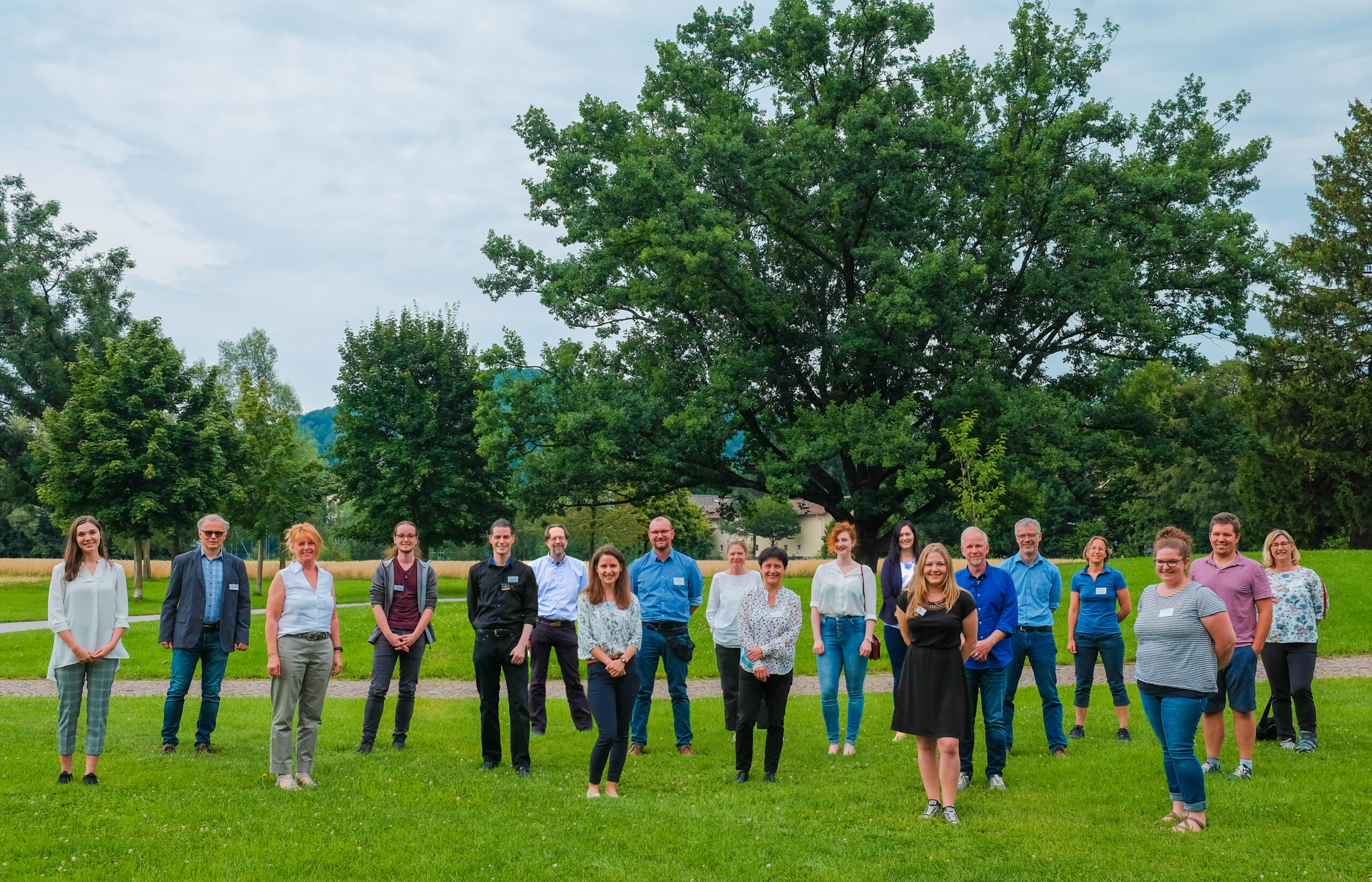Overview of current projects
CO2BS – Coole Bäume und Sensoren. (Cool trees and sensors)
Research and analyze climate-regulating ecosystem services
 Das Projektteam von “CO2BS”, Foto: Simon Haigermoser
Das Projektteam von “CO2BS”, Foto: Simon Haigermoser
Working groups of Didactics Physics and School Development, Mathematics and Urban and Landscape Ecology at PLUS and Pädagogische Hochschule Salzburg are involved in the interdisciplinary project„CO2BS – Coole Bäume und Sensoren“.
The interdisciplinary project “CO2BS – Cool Trees and Sensors” is an innovative project in which a total of 13 project partners* from science & research, the school system and the economy work together. Working groups from the Didactics of Physics and School Development, Mathematics and Urban and Landscape Ecology at the University and University of Education Salzburg, the Central Institute for Meteorology and Geodynamics in Salzburg and local high-tech companies (Sony and Sigmatek) are working together for two years in the talent program funded by the FFG. Together, they are pursuing the goal of getting young students from elementary and lower secondary schools excited about research and development as well as careers in STEM fields (mathematics, computer science, natural sciences, technology).The central themes of the project are the climate, the environment and digitization. The students will conduct independent research in the project. In several modules that build on one another, sensors are programmed, climate-regulating ecosystem services of trees are measured, sensors are read out using an app, and the resulting measurement data is processed and visualized in an age-appropriate manner. In addition, the company partners from science and technology present their professional fields during company excursions and at the “Career Day”.The measurement of climate parameters on trees combines technical focal points with the area of interest of nature and people, which appeals to a large number of students. Such topic- and application-oriented approaches are particularly suitable for promoting girls in the STEM field. The main result will be innovative, subject-didactically consistent, culture-, gender- and language-sensitive interdisciplinary teaching and learning materials, which will be available beyond the project duration.Starting in June 2021, interested schools can apply for “cooperation grants” with their own innovative ideas around the topic of “tree as climate regulator” and “sensor technology” to explore and participate in the project.
Contact and Information:
Projektleitung: Alexander Strahl,
AG Didaktik der Physik,
Tel. +43 (0) 662 / 8044-7314 und -7310 (Sekretariat),
E-Mail: co2bs.ffg-9lQV@sbUM5zIg.ac.aIEJdZtpe3hR
Projektwebsite:
https://urban-tree-climate.sbg.ac.at/
Schule 4.0 – Robert Bosch Stiftung GmbH research funding for Salzburg didactics

Team EXBOX-Digital (Universität Salzburg, TUM School of Education), Foto: Lisa Virtbauer
As part of science-practice collaborations for teaching concepts with digital media, the project EXBOX-Digital – Development and Evaluation of Digital Experimentation Boxes for Teaching Chemistry and Physics of the Didactics of Science at the PLUS School of Education is funded by the Robert Bosch Stiftung.On November 1, 2018, the project EXBOX-Digital – Development and Evaluation of Digital Experimentation Boxes for Teaching Chemistry and Physics, funded by the Robert Bosch Stiftung, started. The project, which is scheduled to run for three years, prevailed over more than 30 other applications and is one of two funded projects. The total funding for the project amounts to approximately €310,000.The main focus of EXBOX-Digital is the question of how digital media can help learners with different school competencies in the school subjects of chemistry and physics to learn. For this purpose, the project leaders Ines Deibl, Timo Fleischer, Alexander Strahl and Jörg Zumbach (Didactics of Natural Sciences at the PLUS School of Education) and Stephanie Moser (TUM School of Education) initiated the EXBOX-Digital project. For the transfer into practice, the Pädagogische Hochschule Salzburg Stefan Zweig and the NMS Praxisschule of the Pädagogische Hochschule Salzburg could be won as cooperation partners.The aim of the project is to design teaching materials for chemistry and physics lessons that can be individually adapted to the performance level of the students. Using adaptive learning aids in the form of learning videos and digital experimentation boxes (EXBOX), students are to be supported in the acquisition of chemical and physical subject knowledge as well as experimentation skills.The EXBOX offers the possibility for students to access learning aids (adaptive web-based training; augmented reality; learning videos with learning aids) depending on their performance level. Students can thus engage with the learning content according to their own learning pace and performance level. The effectiveness of the materials on students’ learning behavior and performance will be verified through empirical studies.




